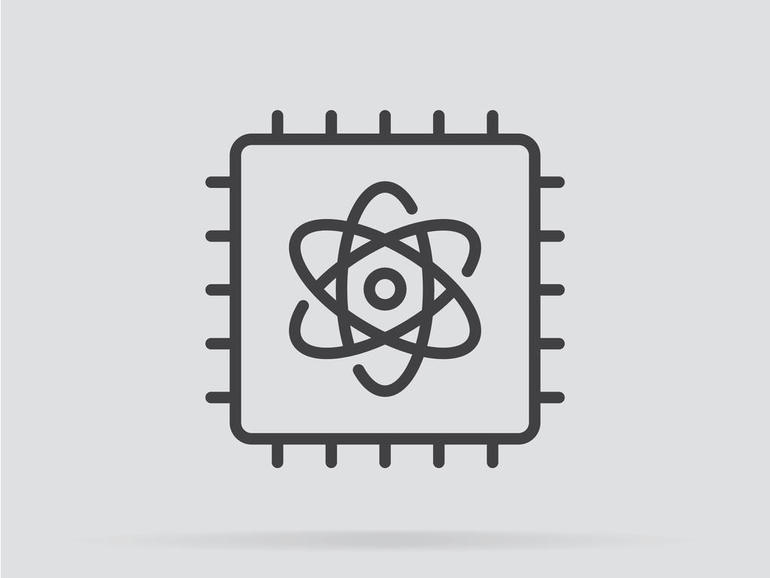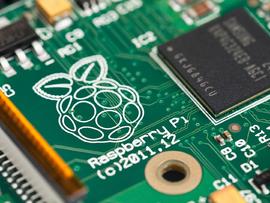IBM's new Quantum Computation Center in Armonk, NY will be home to 14 quantum computers, with cloud-delivered access to enterprises and academia.
| player version | 0.42.297 |
| stream type | HLS |
| playback state | 2 |
| duration | 788.6211779999975 |
| current time | 99.48 |
| buffer length | 354.34 |
| average dropped (fps) | 0.00 |
| playback framerate (fps) | 24.14 |
| switching mode | auto |
| transition state | complete |
| start index bitrate (B/s) | -0.00k |
| current index bitrate (B/s) | 1.83M |
| current bandwidth (B/s) | 24.72M |
IBM's new 53-qubit quantum computer will be available in the newly opened Quantum Computation Center in Armonk, NY on Wednesday, as part of an initiative to make quantum computers more accessible for enterprises, startups, and academic researchers. Likely in a bid to counteract impressions that quantum computers are theoretical or restricted to academia, the company has been increasingly outspoken about IBM Q, in part with the publication of a free quantum textbook earlier this month.
The 53-qubit system, which will be available by the end of October, is purported to be "the single largest universal approximate quantum computing system made available for external access in the industry, to date," per IBM's press release. This is a contrast to designs from other systems as Google's 72-qubit Bristlecone design, which is not available for public access, as well as D-Wave's 2000-qubit quantum annealer, which is designed around solving quadratic unconstrained binary optimization (QUBO) problems. IBM Q, however, is capable of general-purpose calculation, including integer factorization, which is a requirement to break RSA encryption. (Quantum computers from Google, Rigetti, and others, likewise, are capable of integer factorization.)
SEE: Quantum computing: An insider's guide (free PDF) (TechRepublic)
While increasing the number of qubits extends the computational ability of a quantum computer, the 53-qubit design incorporates newer design methods including compact custom circuitry used to reduce error rates and cross-talk between qubits, as well as increasing design scalability.
The currently available Noisy Intermediate-Scale Quantum (NISQ) computers, including IBM Q, are limited by short coherence times—the amount of useful operational time in a calculation before information is lost—and circuit depth, which measures the number of sequential operations that can be performed. IBM's "zero-noise extrapolation" method, published in March, serves to extend the computational capabilities of quantum computers.
IBM's Quantum Computation Center was created "to significantly broaden IBM's existing quantum computing program, which provides cloud-accessible hardware and open source software for research and the exploration of commercial use cases," according to a press release, adding that "IBM's quantum computing systems are optimized for the reliability and reproducibility of multi-qubit operations. Due to these factors, IBM's systems enable state-of-the-art quantum computational research for science with a 95% availability."
IBM notes that the 20-qubit systems available in the Quantum Computation Center have a quantum volume of 16, with first-generation 20-qubit systems having a quantum volume of eight. IBM is still performing benchmarks of the 53-qubit system. The concept of quantum volume was proposed by IBM as a metric that "enables the comparison of hardware with widely different performance characteristics and quantifies the complexity of algorithms that can be run," and has been advanced by NIST and Gartner as a benchmark of quantum computers.
For more, check out "Why post-quantum encryption will be critical to protect current classical computers" and "IBM opens Q Network Hub in Tokyo to help businesses explore quantum computing" on TechRepublic.
Also see
- How to become a data scientist: A cheat sheet (TechRepublic)
- 60 ways to get the most value from your big data initiatives (free PDF) (TechRepublic download)
- Feature comparison: Data analytics software, and services (TechRepublic Premium)
- Volume, velocity, and variety: Understanding the three V's of big data (ZDNet)
- Best cloud services for small businesses (CNET)
- Big Data: More must-read coverage (TechRepublic on Flipboard)




















